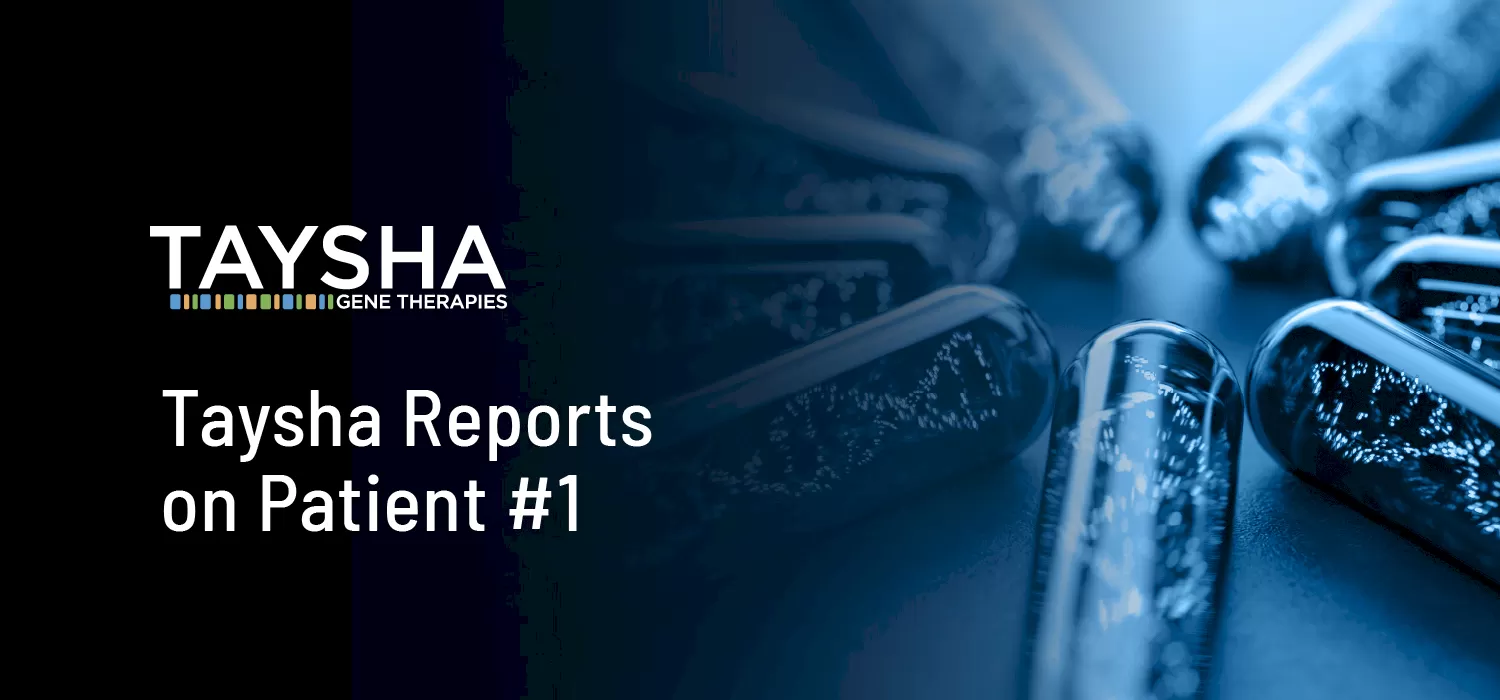Taysha Reports on Patient #1

Today Taysha announced important information on several fronts: preliminary results on Patient #1 in their Rett syndrome gene therapy program; clearance to begin a pediatric clinical trial in the US; secured additional financing to support development into 2025.
After 6 weeks, the gene therapy has been well-tolerated, meaning no safety concerns have been identified.
Impressive efficacy in the first participant has been reported, including a 2-point change of “much improved” rating on the Clinical Global Impression of Improvement (CGI-I) scale, where the treating physician rates change from the patient’s condition prior to receiving treatment. Change is rated on a 7-point scale, 4 (no change) to worsening (5, 6, 7) or improvement (1, 2, 3).
This rating was coupled with a reduction in the severity of Rett syndrome using the Clinical Global Impression of Severity (CGI-S) scale, where the patient’s condition was rated by the treating physician on a 7-point scale. Prior to treatment the participant was rated a 6, meaning “severely ill”, and post-treatment was rated a 5 “markedly ill”. This is the first time that Rett syndrome severity has been reported to improve on a Rett syndrome treatment to date.
Also notable was the improvement rated by parents on the Rett Syndrome Behavior Questionnaire, with a 23-point improvement from the pre-treatment score. This parent-rated scale has a range of 90 points. The participant rated a score of 52 prior to treatment and was rated a 29 at the initial post-treatment time point.
Although encouraging, it is important to point out that these results are in a single patient and are preliminary. We eagerly await further reports from Taysha.
We are proud of our integral role in making this clinical trial possible. RSRT has strategically supported gene therapy for nearly 15 years, with more than $10 million awarded to projects focusing on this approach. As part of our Gene Therapy Consortium RSRT awarded major funding to Steve Gray, PhD, who created a mechanism to control the level of MECP2 expression that is part of the Taysha product.
RSRT trustee and advisor, Adrian Bird, PhD, who developed the MECP2 “mini-gene” that the Taysha trial delivers also received significant funding from RSRT through the MECP2 Consortium.
None of this would be happening without the Rett families that fundraise for RSRT by spearheading events, crowdfunding, and reaching out to their networks. This is the result of your energy and dedication, and we are beyond grateful to you. We hope more Rett families will join the effort and fundraise, because it has never been more important to grow the financial resources that are so needed to continue the momentum towards a cure.
We also offer our profound gratitude to the Rett patients and their families who are participants in this clinical trial. We stand in admiration of your pioneering spirit.


